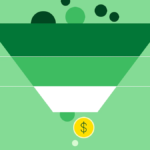Most people believe that algorithmic trading is too complicated for novices to understand. It encompasses many different fields, some of which need a high level of statistical and mathematical proficiency. As such, it may be quite unsettling to those who are unfamiliar with it. In actuality, the general ideas are easy to understand, but the specifics may be acquired gradually and repeatedly. Books on Algorithmic Trading can help you with that.
The best thing about algorithmic trading is that many brokerages provide very realistic market simulators, so there’s no need to risk real money testing one’s skills. Although these systems come with certain limitations, they provide a completely capital-risk-free setting that may promote a high degree of awareness.
Famous Books on Algorithmic Trading

1. Algorithmic Trading: Winning Strategies and Their Rationale by Ernie Chan
In his first Books on Algorithmic Trading, Dr Chan made passing references to momentum, mean reversion, and high-frequency tactics. He expands on these ideas here with a wealth of practical details, although with some challenging arithmetic (think Kalman Filters or CADF). Although the code is mostly based on MATLAB, it may be modified to use C++, Python, or R.
Note that both volumes include a significant number of MATLAB examples. Therefore, you may find certain sections difficult if your MATLAB abilities are still developing. Despite having the term “Algorithmic Trading” in both names, neither book offers a detailed how-to for connecting a MATLAB model or system to the market for algorithmic trading that happens in real time. But don’t worry!
An excellent tip from an Amazon reviewer going by the handle ETO Trader leads to a straightforward fix: Search Google for “MATLAB as an Automated Execution System” and you’ll find a paper by Dr. Chan that walks you through the process of connecting MATLAB to Interactive Brokers via a third-party MATLAB interface.
Available on: Amazon, AbeBooks.
Price:
- eBook: $47.
- hardcover: $52.18.
2. Algorithmic Trading: A Practitioner’s Guide by Jeffrey Bacidore
By definition, this book is unlike any other in the topics it covers. In contrast to previous publications with similar names, Jeffrey Bacidore teaches about the many methods hedge funds and big institutions carry out orders while adhering to transaction cost limits. This is done while maintaining the standard notion of “Algorithmic Trading.”
The first section of the book lays out the fundamentals of the financial market microstructure that any competent algorithmic trader needs to know. The most well-known order execution algorithms that are now in use as benchmarks are later covered by Bacidore. These include the Volume-Weighted Average Price and Time-Weighted Average Price algorithms.
He discusses more complex execution algorithms and performance assessment in turn in the following chapters. The Bacidore Group, a research and consulting company with a focus on trading-related subjects, was founded by Jeffrey Bacidore. He had been employed as a researcher at Citadel and Credit Suisse before starting his own business. Not to mention, he graduated from Indiana University with a PhD in finance.
Available on: Amazon, AbeBooks.
Price: $58.44 (Paperback).
3. Building Winning Algorithmic Trading Systems by Kevin J. Davey
This Beginner Books for Algorithmic Trading will guide you through the complex process of becoming a real-money day trader, and it may become an invaluable addition to your trading reference library. This book offers a perceptive method for testing, statistically analyzing, and validating your trading ideas—whether you’re creating a new trading system or assessing an old one. It’s far more about turning a concept into a potentially lucrative trading method than it is about the finer points of systems.
It’s important to remember, however, that Davey is not a qualified programmer. Because of this, his computer code is a little difficult to comprehend and debug since it often uses cryptic acronyms, which is a common mistake made by inexperienced programmers. The Monte Carlo section focuses more on using the tool that may be downloaded than on making your own. Nevertheless, the book is easy to read and interesting due to its simple style.
Available on: Amazon, Bookswagon.
Price:
- Kindle edition: $48.
- paperback: $52.12.
4. Python for Algorithmic Trading by Yves Hilpisch
For readers who know a little Python and wish to use it to create automated trading methods, this book is unquestionably the best choice. Unlike other publications offered here, its primary goal is to provide simplified versions of real-world tasks—like creating a strategy, backtesting it, and putting it into practice—that quantitative developers do daily.
The author also discusses dealing with WebSockets and live data, which is one of the key topics to master when implementing algorithms that trade at (relatively) low frequency. He demonstrates how to build a basic WebSocket server to utilize it on the client side while being broker-agnostic.
One of the top organizations for teaching Python and quantitative finance is the Python Quants, founded by Yves Hilpsich. He has a degree in financial mathematics, which he undoubtedly uses to his advantage when explaining otherwise complicated subjects in a manner that would be challenging to comprehend.
Available on: Amazon, AbeBooks.
Price:
- Kindle edition: $42.27.
- Paperback: $44.49.
5. Machine Learning for Algorithmic Trading by Stefan Jansen
First off, ‘Machine Learning for Algo Trading’ author and Applied AI founder/CEO Stefan Jansen assumes that the reader is well-versed in a wide range of financial terms and ideas. Thus, before beginning this book, make sure you have a solid knowledge of financial, investing, and programming ideas. Python proficiency is required since Jansen’s well-constructed code may sometimes be complicated and lack comprehensive explanations.
Nonetheless, this one of the famous Books on Algorithmic Trading is a must-have if you’re an experienced practitioner in these fields looking to expand your understanding of machine learning and learn how to create and test automated trading strategies for live markets using programs like pandas, TA-Lib, scikit-learn, LightGBM, SpaCy, Gensim, TensorFlow 2, Zipline, back trader, Alphalens, and Pyfolio.
A reviewer did bring out a possible problem: the book makes extensive use of Quantopian’s library and services, which sadly closed in November 2020. Should subsequent iterations use, for example, QuantConnect’s LEAN APIs, the book may once again achieve its highly regarded standing. However, Jansen may be contacted via GitHub if you have any issues, so he may be able to help you get past this problem.
Available on: Amazon, Bookswagon.
Price:
- Kindle edition: $35.43.
- Paperback: $37.29.
6. Advances in Financial Machine Learning by Marcos Lopez de Prado
Equipped with a solid background in Python, machine learning, time series analysis, statistics, and portfolio management? If so, Advanced Financial Machine Learning is a gold mine that is just begging to be discovered! If not, we advise you to read this advanced work after developing a firm grasp of these foundational subjects.
This book provides experienced readers with a plethora of knowledge on complex topics like explosiveness tests, entropy estimators, deflated Sharpe ratios, hierarchical risk parity, and, most importantly, backtesting traps, which author Marcos López de Prado explores in great detail.
It is noteworthy that the book states rather explicitly from the outset that it takes a model-agnostic approach. Rather, it focuses on the whole field of modeling, deftly avoiding specific models such as random forests or linear regressions.
Available on: Amazon, Bookswagon.
Price:
- Audiobook: Free with Audible Premium.
- Kindle edition: $33.
- Audio CD: $27.29.
- Hardcover: $31.44.
7. Statistically Sound Indicators For Financial Market Prediction: Algorithms in C++ by Timothy Masters
Each dedicated trader needs to own statistically sound indicators. Despite being presented in a semi-introductory manner, it is jam-packed with priceless insights that might save you years of indicator code trial and error. With its promise of more lucrative buy and sell positions, this Beginner Book for Algorithmic Trading does a fantastic job of elucidating how to stabilize leading indicators for increased statistical dependability.
In addition, he provides methods for determining if variable outcomes are the consequence of market stagnation or your system, suggests remedies for the former, examines the difficulties in integrating various markets into systems, and presents The Janus Theory—a tactic that Masters himself employs.
Available on: Amazon, AbeBooks.
Price: $49.95 (Paperback).
8. Systematic Trading by Robert Carver
Some people consider Robert Carver’s “Systematic Trading” to be the most essential book that each trader, regardless of experience level, should read. The author discusses every single attribute that a good trading algorithm needs to have. Through concise, logical, and amiable explanations, the author shares ideas that would often take up many volumes to fully discuss.
Most of the time, novices in the algorithmic trading field tend to overfit the parameters of a select few technical indicators. The author begins by going over the prevalent biases that are important to consider while coming up with trading ideas. Following this, the book discusses the many methods for testing a trading strategy and the factors to take into account to produce (more) trustworthy outcomes.
Because the author is an experienced trader, he spends a good deal of the book on position size and risk management. These are the most frequent reasons for bankruptcy and are often disregarded by traders.
Available on: Amazon, Abebooks.
Price:
- Kindle edition: $42.99.
- Paperback: $35.92.
Best Algorithmic Trading Courses
If you are truly interested in Algorithmic Trading combine these courses with Books on Algorithmic Trading for a boost in your career:
- Artificial Intelligence for Trading from Udacity.
- Oxford University’s Algorithmic Trading Programme.
- Investment Management with Python and Machine Learning Specialization from EDHEC.
- Electronic Trading in Financial Markets from the New York Institute of Finance.
- Machine Learning and Reinforcement Learning in Finance Specialization from NYU.
- Trading Strategies in Emerging Markets from ISB.
- Machine Learning for Trading from NYIF.
- KJ Trading Systems: Strategy Factory Workshop.
- Masters Course in Automated Algorithmic Trading.
- Black Algo Trading: Build Your Trading Robot.
FAQ
Q: To what extent does algorithmic trading work?
A: Algorithmic trading can, in fact, be profitable. Compared to a human trader, algorithmic trading may provide a more methodical and disciplined approach to trading, enabling traders to find and execute deals more quickly.
Q: In what ways might algorithmic trading be successful?
A: Make sure algorithms are continually reviewed and improved so they continue to work well in changing market situations. Backtesting: Evaluate algorithms’ performance and find any possible flaws by thoroughly testing them using previous data.
Q: Which two advantages come with algorithmic trading?
A: An algorithmic transaction opens up a channel for traders to make lots of deals quickly and accurately. The likelihood of making more money rises as you make more deals. The pace of transactions has quickly risen due to greater innovation and technological use.







